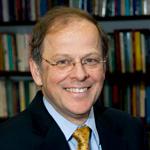From the Washington University Record
October 6, 2010
By Lee Phillion
 |
| Victoria Anwuri (left), project manager for the Program for Elimination of Cancer Disparities (PECaD), and Aimee James, PhD, assistant professor of surgery, look over materials related to their research into health disparities. |
Each day, 3,400 people in the United States are diagnosed with cancer and another 1,500 die from the disease. And while these numbers are disturbing, they also harbor a fundamental inequity: racial and ethnic minority, low-income or education, underserved and rural groups form a larger percentage of these totals than their proportions in the general population.
A new $4.27 million, five-year grant from the National Cancer Institute will enable Washington University School of Medicine researchers at the Siteman Cancer Center’s Program for the Elimination of Cancer Disparities (PECaD) to extend its work to eliminate racial and economic gaps in cancer care.
PECaD was one of 23 organizations selected to receive a Community Networks Program Center grant from the National Cancer Institute in 2010.
The grant will enable PECaD to broaden its community-based outreach, research and training programs to southeastern Missouri and St. Clair County, Ill., as well as strengthen its activities in St. Louis City and north St. Louis County in Missouri.
Focus on these areas is based on poverty levels, limited access to cancer screening and prevention services, excess cancer incidence or mortality and expressed community interest. Missouri is ranked 12th in the nation by the Centers for Disease Control for total cancer mortality, and PECaD’s focus areas have some of the highest cancer mortality rates in the state.
The grant will also enable PECaD to develop a framework for evaluation of its efforts.
 |
|
Colditz |
“This new funding gives us a wonderful opportunity to build on what we have learned to date about ways to address cancer disparities in St. Louis,” says Graham Colditz, MD, DrPH, the Niess-Gain Professor of Surgery at the School of Medicine and associate director of the cancer prevention and control program at the Siteman Cancer Center at Barnes-Jewish Hospital and Washington University School of Medicine. “Our community engagement has continued to strengthen over the past five years, and we look forward to working with our partners to achieve important advances in reducing cancer disparities in the coming years.”
PECaD was established in 2003 in response to an excess cancer burden within the region and the state, particularly for minority and medically underserved populations. In 2005, the program received a $1.25 million National Cancer Institute grant, which enabled PECaD to develop the successful programs it manages today.
The award will support awareness, screening and patient education for breast, lung and colorectal cancers in the focus areas as well as ongoing efforts in educational research with the prostate cancer community.
PECaD will provide community-based participatory research training for researchers and community collaborators, with the aim of increasing minority participation in health studies.
The program’s strategy is to partner with local community organizations to spread the word about cancer risks, screening options, funding programs and referral centers in nonthreatening ways. This grassroots model is one of the most successful efforts in the country at reducing cancer-care disparity.
For more information about PECaD, call (314) 747-4611 or e-mail pecad@siteman.wustl.edu.
# # #
Washington University School of Medicine’s 2,100 employed and volunteer faculty physicians also are the medical staff of Barnes-Jewish and St. Louis Children’s hospitals. The School of Medicine is one of the leading medical research, teaching and patient care institutions in the nation, currently ranked fourth in the nation by U.S. News & World Report. Through its affiliations with Barnes-Jewish and St. Louis Children’s hospitals, the School of Medicine is linked to BJC HealthCare.
Siteman Cancer Center is the only NCI-designated Comprehensive Cancer Center within a 240-mile radius of St. Louis. Siteman Cancer Center is composed of the combined cancer research and treatment programs of Barnes-Jewish Hospital and Washington University School of Medicine.